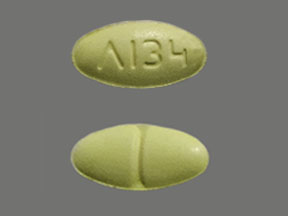
Triamterene-hydrochlorothiazide Coupons & Savings Card – Discount Prices from $6.66
Generic for: Maxzide, Maxzide-25
My prescription
Edit
37.5-25MG, Triamterene-hydrochlorothiazide (30 Tablets)
Select pharmacy

CVS
$18.87
COUPON PRICE
Albertsons
$6.66
COUPON PRICE
Walgreens
$7.00
COUPON PRICE
Walmart
$13.97
COUPON PRICEFree Triamterene-hydrochlorothiazide Savings Card

Albertsons
$6.66
Show this coupon to your pharmacist
ID
LH65043F4C
PCN
HT
BIN
011867
GRP
LABH001
This coupon is not insurance
More prescriptions for hypertension
More prescriptions for hypertension
Price history for Maxzide-25 (brand) & Triamterene-hydrochlorothiazide (generic)
30 Tablets, 37.5-25MG
Average retail price for Maxzide-25
Average retail price for Triamterene-hydrochlorothiazide
Average SaveHealth price for Triamterene-hydrochlorothiazide
Our price history data is based on aggregated prescription data collected from participating pharmacies in America. Our prescription data updates daily to reflect the latest price changes. If you notice a missing data point, it means there wasn't sufficient data available to generate a monetary value for that date.
We analyzed Triamterene-hydrochlorothiazide prices for (37.5-25MG, 30 Tablets) over the last 12 months. The average retail price was $34.53, while the average price using the SaveHealth discount card was $7.96. That's a savings of approximately 76.95% when using our Triamterene-hydrochlorothiazide coupon.
Compared to the generic version, Maxzide-25 had an average price of $69.14 over the same time period. With the SaveHealth savings card, Triamterene-hydrochlorothiazide is 88.49% cheaper on average than Maxzide-25.
*Retail prices are based on pharmacy claims data, and may not be accurate when we don't have enough claims.
Triamterene-hydrochlorothiazide dosage forms
Dosage Quantity Price from Per unit 37.5-25MG 30 Tablets $11.34 $0.38 37.5-25MG 45 Tablets $12.51 $0.28 37.5-25MG 60 Tablets $13.69 $0.23 37.5-25MG 90 Tablets $20.61 $0.23 37.5-25MG 180 Tablets $23.22 $0.13 75-50MG 15 Tablets $10.47 $0.70 75-50MG 30 Tablets $11.94 $0.40 75-50MG 45 Tablets $13.41 $0.30 75-50MG 60 Tablets $14.87 $0.25 75-50MG 90 Tablets $21.69 $0.24
| Dosage | Quantity | Price from | Per unit |
|---|---|---|---|
| 37.5-25MG | 30 Tablets | $11.34 | $0.38 |
| 37.5-25MG | 45 Tablets | $12.51 | $0.28 |
| 37.5-25MG | 60 Tablets | $13.69 | $0.23 |
| 37.5-25MG | 90 Tablets | $20.61 | $0.23 |
| 37.5-25MG | 180 Tablets | $23.22 | $0.13 |
| 75-50MG | 15 Tablets | $10.47 | $0.70 |
| 75-50MG | 30 Tablets | $11.94 | $0.40 |
| 75-50MG | 45 Tablets | $13.41 | $0.30 |
| 75-50MG | 60 Tablets | $14.87 | $0.25 |
| 75-50MG | 90 Tablets | $21.69 | $0.24 |
Triamterene-hydrochlorothiazide Warnings
This medication may result in elevated potassium levels in the body, posing a higher risk particularly for individuals with diabetes, kidney disease, older adults, or those experiencing severe illness. Elevated potassium can lead to serious, and in rare cases, life-threatening side effects. Please contact your doctor immediately if you experience any of the following severe symptoms:
- Muscle weakness
- Slow or irregular heartbeat
It is important to monitor these symptoms closely and seek medical attention promptly to prevent potential complications.
Triamterene-hydrochlorothiazide Side Effects
Common side effects:
- dizziness
- lightheadedness
- headache
- upset stomach
Less common but important to monitor:
- dehydration
- electrolyte imbalances
- persistently dry mouth
- unusual thirst
- muscle cramps or weakness
- irregular heartbeat
- confusion
Serious side effects:
- fainting
- vision changes
- eye pain
- joint pain (such as in the big toe)
- signs of kidney issues (like changes in urination)
- severe allergic reaction (rash, itching or swelling of face, tongue, or throat, severe dizziness, difficulty breathing)
